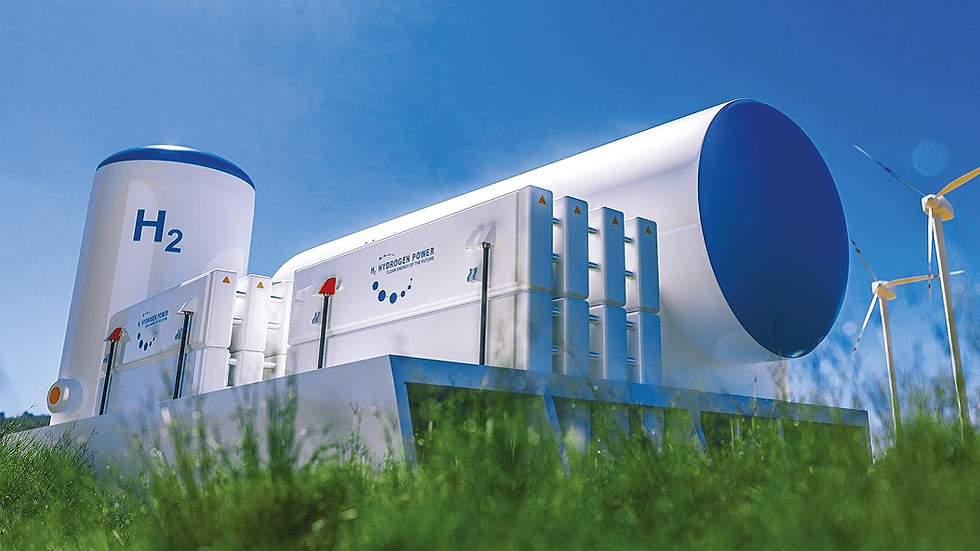
About Us
Economically Producing Low-CO2 Hydrogen and High-Quality Carbon Products

Our Mission
We believe hydrogen will play a vital role in a net-zero energy economy.
When pure hydrogen is used as fuel, it combines with oxygen to produce water, emitting no CO2. This makes hydrogen an environmentally friendly energy choice for industrial and mobility applications.
Additionally, we produce high-quality carbon products, such as carbon black and graphite, which have wide and valuable uses in pigments, tire production, and plastics.

About Us
Producing low-CO2 hydrogen and high-quality carbon products, economically
We believe hydrogen will play a vital role in a net zero energy economy. When pure
hydrogen is used as fuel, it combines with oxygen to produce water, emitting no CO2, making it an excellent energy choice for industrial and mobility applications.
Additionally, we produce high-quality carbon products, such as carbon black and graphite, which have wide and valuable uses in pigments, tire production, and pastics.
Our Background/History

2008
Original ideation to use excess biomass to produce Syngas for power



2023
Founded HyCO Tech Solutions to explore the technology and market opportunity


2024
HyCO Tech team participated in two NSF i-Corps programs, identifying and interviewing customers.
Updated the business model to focus on Methane Pyrolysis to produce low-carbon Hydrogen and high-quality carbon products
2025
Gaining advisors and potential investors, and signed multiple NDAs, MOUs and LOIs


2012
Updated ideation to use excess biomass to produce Hydrogen and CO2 for sequestration
Our Background/History


2008

( Original ideation to use excess biomass to produce Syngas for power)
2022

( Updated ideation to use excess biomass to produce Hydrogen and CO2 for sequestration )
2023

( Founded HyCO Tech Solutions to explore the technology and market opportunity)
2024

(HyCO Tech team participated in two NSF i-Corps programs, identifying and interviewing customers.
Updated the business model to focus on Methane Pyrolysis to produce low-carbon Hydrogen and high quality carbon products )
2025

( Gaining advisors and potential investors, signed multiple NDAs, MOUs and LOIs )


Problems with Hydrogen Production Today
For Hydrogen to be a viable energy solution, production must be cost-effective, non-polluting, and sustainable
Pollutions: The majority of hydrogen on the market today is produced via Steam Methane Reforming (SMR), which produces 10 kg of CO2 per kg of H2 produced.
Cost of Production: Although water electrolysis can be a clean alternative, the cost of the hydrogen produced can be 3-4x more expensive vs. SMR
Water Use: Both SMR and Electrolysis use significant amounts of water to produce hydrogen, which is especially challenging in areas of water scarcity
Power Usage: Both SMR and Electrolysis require massive amounts of power, increasing strain on the power grids
Cost of Transport: Hydrogen is very expensive to transport long distances, making inland distribution difficult



Problems with Hydrogen Production Today
For Hydrogen to be a viable energy solution, production must be cost-effective, non-polluting, and sustainable
Pollution: The majority of hydrogen on the market today is produced via Steam Methane Reforming (SMR), which produces 10 kg of CO2 per kg of H2 produced
Cost of Production: Although water electrolysis can be a clean alternative, the cost of the hydrogen produced can be 3-4x more expensive vs. SMR
Water Usage: Both SMR and Electrolysis use significant amounts of water to produce hydrogen, which is especially challenging in areas of water scarcity
Power Usage: Both SMR and Electrolysis require massive amounts of power, increasing strain on the power grids
Cost of Transport: Hydrogen is very expensive to transport long distances, making inland distribution difficult

Methane Pyrolysis is the Solution
Hydrogen produced by Methane Pyrolysis can be cost-effective, non-polluting, and sustainable
Clean: By producing solid carbon and graphite, pyrolysis avoids the CO2 production of SMR and produces a valuable feedstock that is sequestered in the downstream products.
Cost-Effective: Hydrogen produced via pyrolysis can be 50% cheaper than electrolysis and comparable to SMR.
Sustainable: Pyrolysis uses 25% of the water required for electrolysis or SMR, making it a more sustainable option in water-stressed regions.
Less Power: Pyrolysis uses less than 50% of the power required for electrolysis or SMR, putting less strain on the power grids.
Flexible & Scalable: Pyrolysis units can be sized from 50 to 1,000 tons per year H2 or more.
Produces Valuable Carbon Products: Depending on the specific technology, methane pyrolysis produces carbon black or graphite. Carbon Black is used in pigments, rubber, and tire manufacturing. Graphite is used in battery production, tire manufacturing, steel manufacturing, and asphalt enhancement.
Comparison of the Paths to Hydrogen
Methane Pyrolysis is Clean, Cost-Effective, and Sustainable
Criteria
SMR
SMR
(with CCS)Electrolysis
(renewable)Electrolysis
(grid)Methane Pyrolysis
CO2 Emissions
High
Low
Low
Medium
None
Cost ($ / kg H2)
$1.2 - $2.1
$1.5 - $2.9
$3.6 - $5.8
$3.0 - $5.0
$1.1 - $2.4
Power Usage (kWh / kg H2)
45
50
50
50
<25
Water Usage (L / kg H2)
20-30
40-85
15-20
20-100
<5
Comparison of the Paths to Hydrogen
Methane Pyrolysis is Clean, Cost-Effective, and Sustainable
Criteria
SMR
SMR
(with CCS)
Electrolysis
(renewable)
Electrolysis
(grid)
Methane Pyrolysis
CO2 Emissions
High
Low
Low
Medium
None
Cost ($ / kg H2)
$1.2 - $2.1
$1.5 - $2.9
$3.6 - $5.8
$3.0 - $5.0
$1.1 - $2.4
Water Usage (L / kg H2)
20-30
40-85
15-20
20-100
<5
Power Usage (kWh / kg H2)
45
50
50
50
<25

